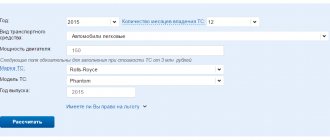Author: Alena Donmezova – Specialist in RKO
Publication date: 04/22/2021
Current for May 2021
Property tax is mandatory for companies that apply the general taxation system and have fixed assets on their balance sheet. It is also paid by organizations using the simplified tax system, whose property is included in the list of Art. 346.11 of the Tax Code of the Russian Federation and is taxed at the cadastral value.
Property tax is a regional tax, so its basis is formed by the rules of the Tax Code, and the details are approved by the authorities in the constituent entities of the Russian Federation. They have the right to independently establish the procedure for transferring taxes, deadlines for them and the tax rate.
What is subject to property tax?
For Russian and foreign organizations, the object of property tax is (Clause 1, Article 374 of the Tax Code of the Russian Federation):
- real estate, including those transferred for temporary possession, use, disposal, trust management, contributed to joint activities and received under a concession agreement, which they take into account on the balance sheet as fixed assets, if the tax base is determined as the average annual cost;
- real estate that is located on the territory of the Russian Federation and belongs to organizations on the right of ownership or the right of economic management, as well as received under a concession agreement, the tax base for which is determined as the cadastral value.
Article 403 of the Tax Code of the Russian Federation. Tax base (current version)
In paragraph 1 of the commented article, the legislator established a general rule for determining the tax base for property tax on individuals, according to which the tax base is determined in relation to each taxable object as its cadastral value indicated in the Unified State Register of Real Estate as of January 1 of the year that is the tax period .
Official position.
The Russian Ministry of Finance expressed its position on the issue of calculating property tax for individuals based on the cadastral value of real estate, including when it changes, and on challenging its results.
The letter of the Ministry of Finance of Russia dated January 22, 2019 N 03-05-06-01/2805 states that taxes are calculated by tax authorities on the basis of information about real estate, including information about their cadastral value contained in the Unified State Register of Real Estate and presented in tax authorities by authorized bodies in the manner established by Article 85 of the Tax Code of the Russian Federation.
Thus, the calculation of property tax for individuals in relation to real estate based on the cadastral value indicated in the Unified State Register of Real Estate as of January 1 of the year, which is the tax period, is legal. The determination of the cadastral value of real estate (including land plots), as well as the revision of the results of the state cadastral valuation are regulated by Federal Law of July 29, 1998 N 135-FZ “On Valuation Activities in the Russian Federation”.
According to Article 24.18 of the Federal Law of July 29, 1998 N 135-FZ, the results of determining the cadastral value of a property can be challenged by individuals in the commission for the consideration of disputes about the results of determining the cadastral value or in court, if such results affect the rights and obligations of these individuals .
The basis for revising the results of determining the cadastral value is the unreliability of information about the property used in determining its cadastral value, as well as the establishment of its market value in relation to the property.
An application to challenge the cadastral value of a property can be submitted to the commission during the period from the date of entry into the Unified State Register of Real Estate of the results of determining the cadastral value to the date of entry into the Unified State Register of Real Estate of the results of determining the cadastral value obtained during the next state cadastral assessment.
The procedure for challenging the results of the cadastral value of a real estate property in court is regulated by Chapter 25 of the Code of Administrative Proceedings of the Russian Federation.
Attention!
Property tax for individuals is calculated on the basis of the cadastral value indicated in the Unified State Register of Real Estate as of January 1 of the year, which is the tax period, regardless of the timing of the next state cadastral valuation of real estate.
Official bodies also pay special attention to this aspect. See, for example, letter of the Ministry of Finance of Russia dated November 16, 2018 N 03-05-06-01/82751.
New in legislation!
Please note that paragraph 2 of the commented article is valid in the updated version, which came into force on January 1, 2019.
It is necessary to take into account that paragraph 2 of Article 403 of the Tax Code of the Russian Federation, in terms of establishing the procedure for applying the cadastral value changed during the tax period, applies to information about changes in cadastral value entered into the Unified State Register of Real Estate on grounds that arose from January 1, 2021.
New in the official position.
In the letter of the Ministry of Finance of Russia dated January 22, 2019 N 03-05-06-01/2805, in connection with these innovations, it also clarified that the provisions of paragraph 2 of Article 403 of the Tax Code of the Russian Federation came into force on January 1, 2021 and apply to information on changes in cadastral value entered into the Unified State Register of Real Estate on grounds that arose from January 1, 2021.
Thus, in the event of a change in the cadastral value of real estate and the relevant information is entered into the Unified State Register of Real Estate, the amounts of land tax and property tax for individuals can be recalculated from the date of application for tax purposes of information about the changed (disputed) cadastral value, but no more than for three tax periods preceding the calendar year of sending a tax notice in connection with the recalculation (clause 2.1 of Article 52 of the Tax Code of the Russian Federation).
Meanwhile, as further explained in the letter of the Ministry of Finance of Russia dated December 29, 2018 N 03-05-04-01/96285, on the basis of Article 22 of the Federal Law of July 3, 2021 N 237-FZ “On State Cadastral Valuation” the application to challenge cadastral value of a real estate property may be submitted before the day of entering into the Unified State Register of Real Estate information about the cadastral value of such a real estate property, determined as a result of a new state cadastral valuation.
Taking into account the provisions of Article 403 of the Tax Code of the Russian Federation and Article 22 of Federal Law N 237-FZ, recalculation of property tax for individuals for past tax periods in connection with a change in the cadastral value of real estate in 2021 is possible if they were not included in the Unified State Register of Real Estate the results of a new state cadastral valuation of these real estate objects have been entered.
One of these grounds is the decision of the dispute resolution commission on the results of determining the cadastral value or the court decision on establishing the market value of the property.
In this case, one should take into account the provisions of paragraph 2.1 of Article 52 of the Tax Code of the Russian Federation (as amended by Federal Law dated August 3, 2018 N 334-FZ “On Amendments to Article 52 of Part One and Part Two of the Tax Code of the Russian Federation”), according to which the recalculation of the amounts of previously calculated land tax and property tax for individuals will be carried out for no more than three tax periods preceding the calendar year of sending a tax notice in connection with the recalculation, as well as the provisions of paragraph 7 of Article 78 of the Tax Code of the Russian Federation, establishing a three-year period for filing an application for offset (refund) of excess paid tax.
(Based on materials from the letter of the Ministry of Finance of Russia dated December 20, 2018 N 03-05-06-02/93171).
New in legislation.
Paragraph 3 of the commented article is also in effect in an updated version from January 1, 2021, and it must be taken into account that its provisions apply to legal relations related to the calculation of property tax for individuals from January 1, 2017.
Moreover, it must also be borne in mind that the tax deductions provided for in Chapter 32 of the Tax Code of the Russian Federation also apply to objects of taxation (i.e., an apartment) regardless of the number of participants in common shared ownership.
So, in paragraph 3 of Article 403 of the Tax Code of the Russian Federation, the legislator established that the tax base for the property tax of individuals in relation to an apartment, part of a residential building is determined as its cadastral value, reduced by the cadastral value of 20 square meters of the total area of this apartment, part of a residential building .
At the same time, according to Order of the Ministry of Land Construction of the Russian Federation dated 08/04/1998 N 37 “On approval of the Instructions on accounting of housing stock in the Russian Federation”, the total area of an apartment is determined as the sum of the areas of its premises, built-in wardrobes, as well as the areas of loggias, balconies, verandas, terraces and cold rooms. storerooms, calculated with the following reduction factors: for loggias - 0.5, for balconies and terraces - 0.3, for verandas and cold storerooms - 1.0. The total area of apartments in a residential building is determined as the sum of the total areas of apartments.
Important!
Paragraph 4 of Article 403 of the Tax Code of the Russian Federation similarly applies to legal relations related to the calculation of property tax for individuals from January 1, 2021.
As for a residential building, the tax base is defined as its cadastral value, reduced by the cadastral value of 50 square meters of the total area of this residential building, as follows from paragraph 5 of the commented article.
Thus, in relation to residential buildings with a total area of less than 50 square meters. meters, taxation is not carried out, which also follows from the letter of the Ministry of Finance of Russia dated August 27, 2018 N 03-05-06-01/60821.
Official position.
The letter of the Ministry of Finance of Russia dated 04/09/2018 N 03-05-06-01/23192 states that, on the basis of paragraph 7 of Article 403 of the Tax Code of the Russian Federation, representative bodies of municipalities have the right to increase the amount of tax deductions. In addition, representative bodies of municipalities are given the right to establish tax benefits not provided for by Chapter 32 of the Tax Code of the Russian Federation and the grounds for their use by taxpayers.
Taking into account the above, on issues related to increasing the amount of tax deductions, as well as providing tax benefits for property taxes for individuals, you should contact local governments.
Comment source:
“ARTICLE-BY-ARTICLE COMMENTARY TO CHAPTER 32 of the Tax Code of the Russian Federation “PROPERTY TAX ON INDIVIDUALS”
Yu.M. Lermontov, 2019
Average annual cost
When determining the tax base as the average annual value of property, such property is accounted for at its residual value, formed in accordance with the established accounting procedure approved in the accounting policy of the organization.
The residual value of fixed assets as of the reporting date is formed based on the original cost and depreciation accrued during its operation. The amount of depreciation is set based on the useful life of the asset.
Object of taxation
Objects of taxation are real estate recorded on the balance sheet as fixed assets, in the manner established for accounting (Article 374 of the Tax Code of the Russian Federation).
Let us remind you that as of 2021, movable property is no longer subject to property tax. The corresponding amendments to paragraph 1 of Article 374 and other norms of the Tax Code of the Russian Federation were introduced by Law No. 302-FZ of August 3, 2018. Organizational property tax (advance payments thereon) is calculated based on the tax base established for a particular object.
The basis for calculating property tax for organizations can be the average annual value of a fixed asset or the cadastral value of an object.
Property tax based on cadastral value
In relation to individual real estate objects, when calculating the tax, their cadastral value is applied (clause 1 of Article 378.2 of the Tax Code of the Russian Federation).
Such objects include:
- administrative and business centers and shopping centers (complexes) and premises in them;
- non-residential premises, the purpose of which, in accordance with the cadastral passports of real estate objects or documents of technical registration (inventory) of real estate objects, provides for the placement of offices, retail facilities, public catering facilities and consumer services, or which are actually used for the placement of offices, retail facilities, public catering facilities and household services service;
- objects of real estate of foreign organizations that do not operate in the Russian Federation through permanent representative offices;
- residential premises, garages, parking spaces, unfinished construction projects, as well as residential buildings, garden houses, outbuildings or structures located on land plots provided for personal farming, vegetable gardening, horticulture or individual housing construction.
For tax purposes, the cadastral value approved in the law of the subject of the Russian Federation that established the result of the cadastral price is important. It must be applied based on the date of entry into force of this law.
Thus, the condition for the use of cadastral value is their inclusion in the list of real estate objects determined by the constituent entity of the Russian Federation (hereinafter referred to as the List).
This list must be updated annually.
Officials in the commentary letter note that real estate objects, cadastral numbers of which are included in the List, owned by organizations under the right of ownership or right of economic management, as well as received under a concession agreement, are taxed at the cadastral value in the tax period for which the List is determined.
Where can I find out the cadastral value of a specific premises inside a shopping or business center?
The cost of any property is indicated in its cadastral passport. You can also find out the cadastral value from the certificate of cadastral value issued by the Roskadastre authorities. We recommend applying for such a certificate annually, as the cadastral value may change. If a specific premises does not have a cadastral number and, therefore, a cadastral value, the tax is calculated based on the share of the cadastral value of the building in which the premises are located, corresponding to the share of the area of the premises in the total area of the building (clause 6 of Article 378.2 of the Tax Code of the Russian Federation). Simply put, if you are the owner of 100 square meters in a business center with a total area of 5,000 square meters, and the cadastral value of your premises has not been established, then you will pay tax based on 2% of the cadastral value of the entire business center.
Property tax deferment for landlords in 2020
The inspectors also recalled support measures regarding the payment of tax by landlords who provided deferred payment of rent under real estate lease agreements.
To obtain this measure, each subject of the Russian Federation must maintain a list of such taxpayers.
The tenant under real estate lease agreements has the right to demand a reduction in rent for 2021 due to the inability to use the property due to the decision to introduce a high alert regime.
Is it possible to challenge the inclusion of an object in the list approved by a constituent entity of the Russian Federation?
The Tax Code does not provide for such a possibility. Therefore, the tax authorities do not consider the claims of payers regarding the validity of including objects in the relevant list. At the same time, the authorities of a constituent entity of the Russian Federation can establish such an order. For example, in Moscow, in case of disagreement with the inclusion of a real estate property in the list, the taxpayer has the right to contact the State Inspectorate for Control over the Use of Real Estate Objects of the City of Moscow with a corresponding statement, as a result of which the property may be excluded from the list.
The object is divided - how to pay tax?
If during the year the property included in the list was divided into two (or several) separate objects, the newly formed objects are also subject to taxation at the cadastral value before being included in the list formed by Rosreestr.
This means, although those formed as a result of the division of the object are not on the list, the property tax on them still needs to be calculated based on their new cadastral value.
It is determined on the date of registration of objects for state cadastral registration. New objects will be included in the list in due course. Until then, records about them are entered into new sections of the Unified State Register of Rights and Transactions with Real Estate, and new cases of title documents with new cadastral numbers are opened for them.
Thus, a newly formed real estate object is taxed at the cadastral value determined on the date of registration of such an object for state cadastral registration. Tax accrual on such objects must begin before inclusion in the list approved by the constituent entity of the Russian Federation.
Expert “NA” E.V. Natyrova
List of objects
Thus, property tax at cadastral value is imposed only on those objects that are included in a special list. This list is formed on January 1 of the next tax period and is approved by the regional authorities (subclause 1, clause 7, article 378.2 of the Tax Code of the Russian Federation).
The authorities of the subject must determine the list of objects for which property tax will be calculated based on the cadastral value, send it to the tax authorities at their location and post the information on the official website of the constituent entity of the Russian Federation no later than the 1st day of the next tax period.
The list of real estate objects for which the corporate property tax base depends on the cadastral value is compiled one-time no later than the 1st day of the next tax period. You cannot add new buildings to it after the start of the tax period.






